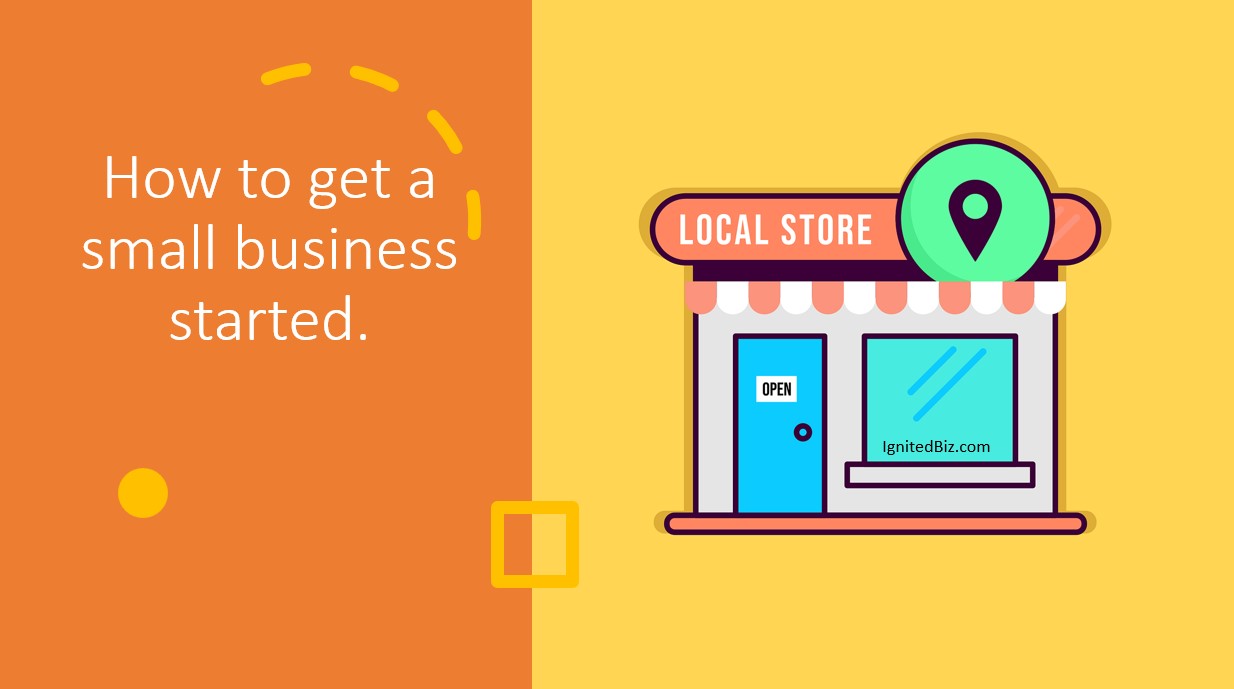How to Get a Small Business Started. It is not easy and most likely your head will be spinning as you try to get your local business started.
When it comes to starting a small business, there are many essential steps you need to take. Starting a small business involves creating a marketing plan and a unique selling proposition. It also requires a lot of patience and consistent work. However, it’s worth it. Having a small business means you’ll be working for yourself and not for someone else.
Choosing a legal structure
One of the first decisions you’ll need to make as a new business owner is your company’s legal structure. Different types of businesses have different needs and requirements when it comes to the legal system, and you’ll want to select one that works best for your particular needs and industry. A small business lawyer can help you choose the right legal structure for your business.
There are several common business structures, including the sole proprietorship, partnership, standard corporation, limited liability company, and benefit corporation. Choosing the proper structure will impact taxes, personal liability, and your ability to raise funds.
Choosing a market research method
One of the most important steps when starting a small business is determining the target market. Market research can help you determine whether a product or service will sell, what the competition is selling, and how to best reach those customers. It also lets you determine what products or services your target market will be most interested in.
Market research will help you improve your product/service and develop a better business strategy. It can also influence your revenue target. There are two major types of market research: primary and secondary. Primary research includes data gathered by the business owner themselves or a third party. The primary analysis method will analyze your current sales metrics, customers, and business operations. Secondary market research, on the other hand, will consider your competition.
Choosing a bookkeeping program
Choosing the right bookkeeping software is essential if you’re a small business owner. It should be easy to use, allow you to generate financial statements and keep track of your money. It should also include features to manage inventory and project management. It should also be able to connect to your bank and credit card accounts so you can download transactions automatically. Some programs even connect to other business applications, including email and CRM systems.
Small business owners may be able to use QuickBooks Online to keep track of their finances. Whether you’re just starting out or are looking to hire a bookkeeper, choosing the right program will make your business easier to manage. A good program will also offer a free trial so you can see if it’s right for your needs. Some programs even have a money-back guarantee, which is a good idea.
Finding employees
When starting a small business, finding the right people to work for you is often difficult. While each position fulfills important responsibilities, small businesses often have limited resources. In addition, hiring the right people is not always easy, and you may run into difficulties during the training and onboarding process. Often, this is because the owner doesn’t have the experience or resources to train the new employees properly.
One proven method for finding great employees is to reach out to your network. You can ask friends and family, or look for job listings on professional sites like LinkedIn. Reaching out to your network also helps you save time because you don’t have to spend a lot of time vetting candidates. Referrals from vendors and business partners can also be useful, and many companies offer referral bonuses for existing employees. These can include cash bonuses, gift cards, and other rewards.
Managing finances
Managing your small business finances is a crucial task for new business owners. Without the right financial management, your business cannot operate. The good news is that there are resources available that will guide you through the process. Managing finances is essential for a small business because without it, you risk losing valuable tax deductions, being rejected by lenders, or making mistakes that can harm your business’s growth.
First and foremost, it’s important to keep track of your income and expenses. This will help you make better decisions. Fortunately, many free accounting programs are available, including QuickBooks and FreshBooks.
Advertising and marketing is another step in starting a business.
How to Get a Small Business Started Conclusion:
The best way to get a small business started is to do your research, create a business plan, and consult with experts. Then, you can begin taking steps to launch your business. You can make your small business dreams a reality with hard work and dedication.

